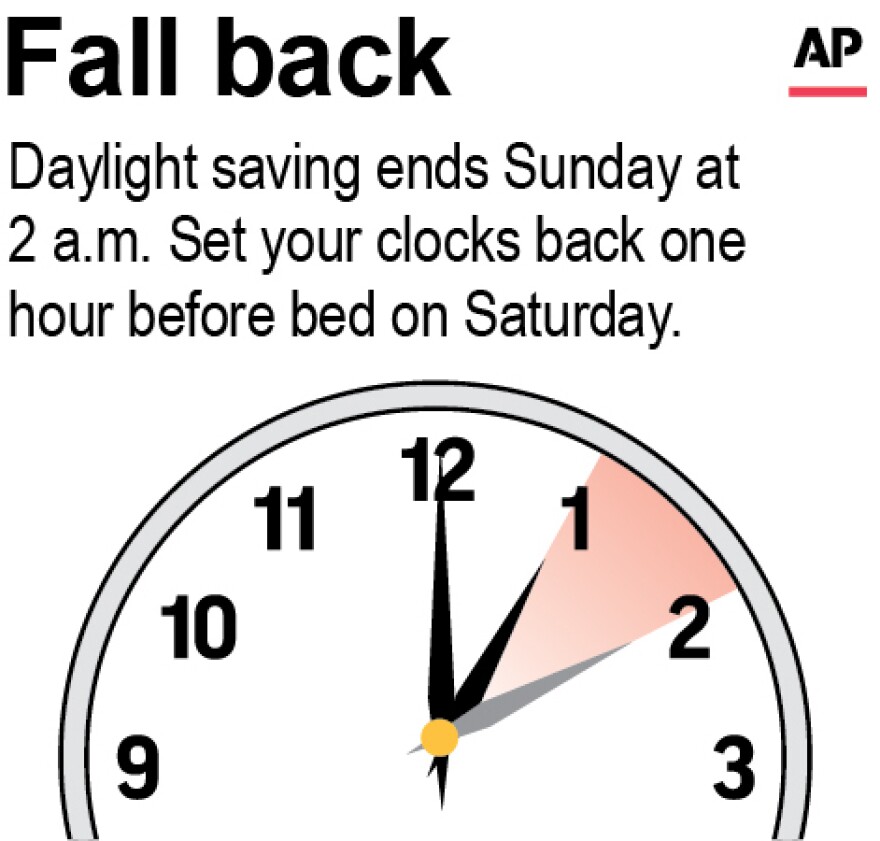BETHLEHEM, Pa. - Get ready to fall back, Lehigh Valley.
Daylight saving time (DST) ends at 2 a.m. on Sunday, Nov. 6, with sunrise in the Lehigh Valley set to occur at 6:37 a.m. and sunset falling just before 5 p.m. (precisely at 4:52 p.m.).
Will it be our last go-round with the twice-annual changing of the clocks?
- The U.S. Senate passed the Sunshine Protection Act earlier this year, but it hasn't been voted on in the House
- The legislation would make daylight saving time permanent starting in 2023
- Until the bill passes — if it ever does — we're stuck changing our clocks to "spring forward" and "fall back"
On March 16, 2022, the U.S. Senate passed the Sunshine Protection Act (S.623) — legislation that would make daylight saving time permanent starting in 2023, with supporters saying it would lead to greater economic activity at the back end of the day.
The Senate approved the measure with unanimous consent and immediately moved it to the House for consideration. But there has been no action on it since, with the measure "held at the desk" of Speaker Nancy Pelosi.
The House needs to approve the bill before it makes its way to President Joe Biden. But there's no telling when or if there will ever be a vote.
Support in the Lehigh Valley
Sen. Pat Toomey, R-Pa., voted in favor of ending daylight saving at the federal level. The measure also has support in Pennsylvania, including in the Lehigh Valley.
Last year, State Sen. Lisa Boscola (D-Northampton) proposed moving Pa. to Atlantic Standard Time, establishing a uniform standard time throughout the Commonwealth, and prohibiting the use of daylight saving time.
Dozens of states have also introduced legislation to end our twice-yearly changing of the clocks, with more than 50 bills nationwide. But while states can allow for a permanent standard time, Congress has to approve a yearlong daylight saving time.

What's the big deal about DST?
Florida Sen. Marco Rubio, one of the key sponsors of The Sunshine Act, said input on the time change would be sought from airlines, broadcasters and others affected by any such change.
"I know this is not the most important issue confronting America, but it's one of those issues where there's a lot of agreement," Rubio said when S. 623 sailed through the Senate.
Supporters say changes won't just benefit the economy, but help children to play outdoors later, reduce car accidents and help those who suffer from seasonal depression (also called seasonal affective disorder, or SAD).
But the National Association of Convenience Stores opposed any change, and told Congress "we should not have kids going to school in the dark."
If the bill were to pass the House and earn Biden's signature, permanent daylight saving time would take effect on Nov. 5, 2023. But until the bill passes — if it ever does — we're stuck changing our clocks, so don't forget to "fall back" on Sunday.


